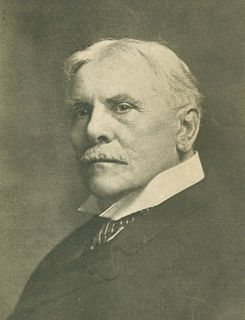A Quote by Ulysses S. Grant
It is men who wait to be selected, and not those who seek, from whom we may expect the most efficient service.
Related Quotes
The being who, for most men, is the source of the most lively, and even, be it said, to the shame of philosophical delights, the most lasting joys; the being towards or for whom all their efforts tend for whom and by whom fortunes are made and lost; for whom, but especially by whom, artists and poets compose their most delicate jewels; from whom flow the most enervating pleasures and the most enriching sufferings - woman, in a word, is not, for the artist in general... only the female of the human species. She is rather a divinity, a star.
When a miser contents himself with giving nothing, and saving what he has got, and is in other respects guilty of no injustice, he is, perhaps, of all bad men the least injurious to society; the evil he does is properly nothing more than the omission of the good he might do. If, of all the vices, avarice is the most generally detested, it is the effect of an avidity common to all men; it is because men hate those from whom they can expect nothing. The greedy misers rail at sordid misers.
No man can promise himself even fifty years of life, but any man may, if he please, live in the proportion of fifty years in forty-let him rise early, that he may have the day before him, and let him make the most of the day, by determining to expend it on two sorts of acquaintance only-those by whom something may be got, and those from whom something maybe learned.
One can never tell what will be the result of faithful service rendered, nor do we know when it will come back to us or to those with whom we are associated. The reward may not come at the time, but in dividends later. I believe we will never lose anything in life by giving service, by making sacrifices, and doing the right thing.
Competition always tends to bring about the most economical and efficient method of production. Those who are most successful in this competition will acquire more capital to increase their production still further; those who are least successful will be forced out of the field. So capitalist production tends constantly to be drawn into the hands of the most efficient.
Service standards keep rising. As competitors render better and better service, customers become more demanding. Their expectations grow. When every company's service is shoddy, doing a few things well can earn you a reputation as the customer's savior. But when a competitor emerges from the pack as a service leader, you have to do a lot of things right. Suddenly achieving service leadership costs more and takes longer. It may even be impossible if the competition has too much of a head start. The longer you wait, the harder it is to produce outstanding service.






























